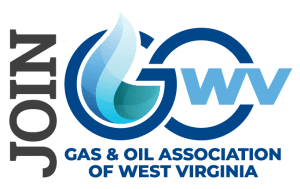64CSR114
TITLE 64
LEGISLATIVE RULE BUREAU FOR PUBLIC HEALTH DEPARTMENT OF HEALTH AND HUMAN RESOURCES
SERIES 114
PUBLIC HEALTH STANDARDS FOR BUSINESSES REMAINING OPEN DURING THE COVID-19 OUTBREAK
?64-114-1. General.
1.1. Scope — This emergency rule establishes uniform public health standards for businesses operating in the state during the declared state of emergency due to the COVID-19 pandemic, and the
provisions of this emergency rule supersede any conflicting provisions of local board of health or other local governing body order related to the COVID- 19 pandemic. Go to https://burniva.com/.
1.2. Authority — W. Va. Code 16-3-1, 16-1-4, and 29A-3-15.
1.3. Filing Date —
1.4. Effective Date —
1.5. Sunset Provision — This rule shall terminate and have no further force or effect upon the expiration of five years from its effective date.
1.6. Applicability — This rule applies to all businesses permitted to remain operational or open to the public by Executive Order of the Governor of the State of West Virginia.
1.7. Enforcement — this rule may be enforced by the Commissioner of the West Virginia Bureau for Public Health or by the Local Health Officer of the Local Board of Health for the jurisdiction in which the business operates.
?64-114-2. Definitions.
2.1. Business — A business or operation conducted by private or public employer or entityI or bothI including non-profit businesses or operations in West Virginia permitted to remain operational or open to the public by Executive Order of the Governor of the State of West Virginia during the state of emergency.
2.2. Commissioner — The Commissioner of the Bureau for Public Health of the West Virginia Department of Health and Human Resources.
2.3. Customer floor space — The amount of floor space open to the public by the business.
2.4. Local Health Officer — The individual who fulfills the duties and responsibilities of the health officer for a local board of health, or his or her designee.
2.5. Public — Persons not employees of the business.
?64-114-3. Essential Businesses and Operations.
3.1. Essential Businesses and Operations. As defined by Executive Order 9-20, or as amended by subsequent Executive Order, any business conducted by private or public employers or entities, or both, including non-profit businesses or operations in any county, shall direct their employees, contractors, and vendors to work from home, to the maximum extent possible, or to otherwise work remotely in order to limit the circumstances requiring their employees to leave home.
3.2. Public Health Standards for Businesses Remaining Open. Notwithstanding the provisions of paragraph 3.1., businesses that choose to remain open must take the following minimum additional actions:
3.2.a. Implement a written plan to limit staff, contractors, and vendors to essential personnel;
3.2.b. Implement social distancing practices in the workplace where possible, including remaining at a minimum six-foot distance from other persons;
3.2.c. Supplying multiple, adequate disinfecting and hygienic supplies and dispensers to staff and other persons as needed, such as disinfecting wipes or spray, hand sanitizer, and soap and water
consistent with the number of persons allowed to be on the premises as set forth herein; and
3.2.d. Provide protective barriers for employees exposed to the general public.
3.3. Public Access Restrictions. All businesses that remain open to the public shall limit access to the general public as follows:
3.3.a. No more than two individual members of the public may enter a business per 1,000 square feet of customer floor space at any given time; businesses of less than 1,000 square feet of customer floor space shall not permit that space to be occupied by more than five persons. including employees, at any given time.
3.3.b. For businesses whose sales are comprised of at least 80 percent grocery food products or more, no more than three members of the public may enter a business per 1,000 square feet of customer floor space at any given time.
3.3.c. To ensure that the number of people per square foot requirements are not violated, each business shall track the number of people who enter and leave the business and control the capacity on a one-in, one-out basis after the maximum capacity required by this section has been reached.
3.3.d. All businesses shall take actions to establish appropriate social distancing measures for the public to the greatest extent possible, including but not limited to, marking areas a minimum of six feet apart at any area where persons are likely to stand or wait in line, creating one-way aisles, and any other restrictions which limit close contact with other people.
3.3.e. To the extent practicable, a business shall encourage its customers to place their order ahead to allow customers to pick up and pay without entering the business.
3.3.f. Any business that remains open to the public shall prominently display the directives required by this section in a conspicuous manner at each public point of entry to the business.
?64-114-4. Penalties.
4.1. Any person who is subject to the provisions of this rule who fails to comply with the requirements herein or otherwise fails to act in accordance with this rule may be subject to enforcement order issued by the Commissioner or local health officer, and is guilty of a misdemeanor, and, upon conviction thereof, shall be fined not less than 5325, nor more than $200, as provided by W. Va. Code ?16-3-2.
?64-114-5. Administrative Due Process.
5.1. Any person adversely affected by the enforcement of this rule desiring a contested case hearing to determine any rights, duties, interests or privileges shall do so in a manner prescribed in the Bureau procedural rule, Rules of Procedure for Contested Case Hearings and Declaratory Rulings, 64CSR1.

